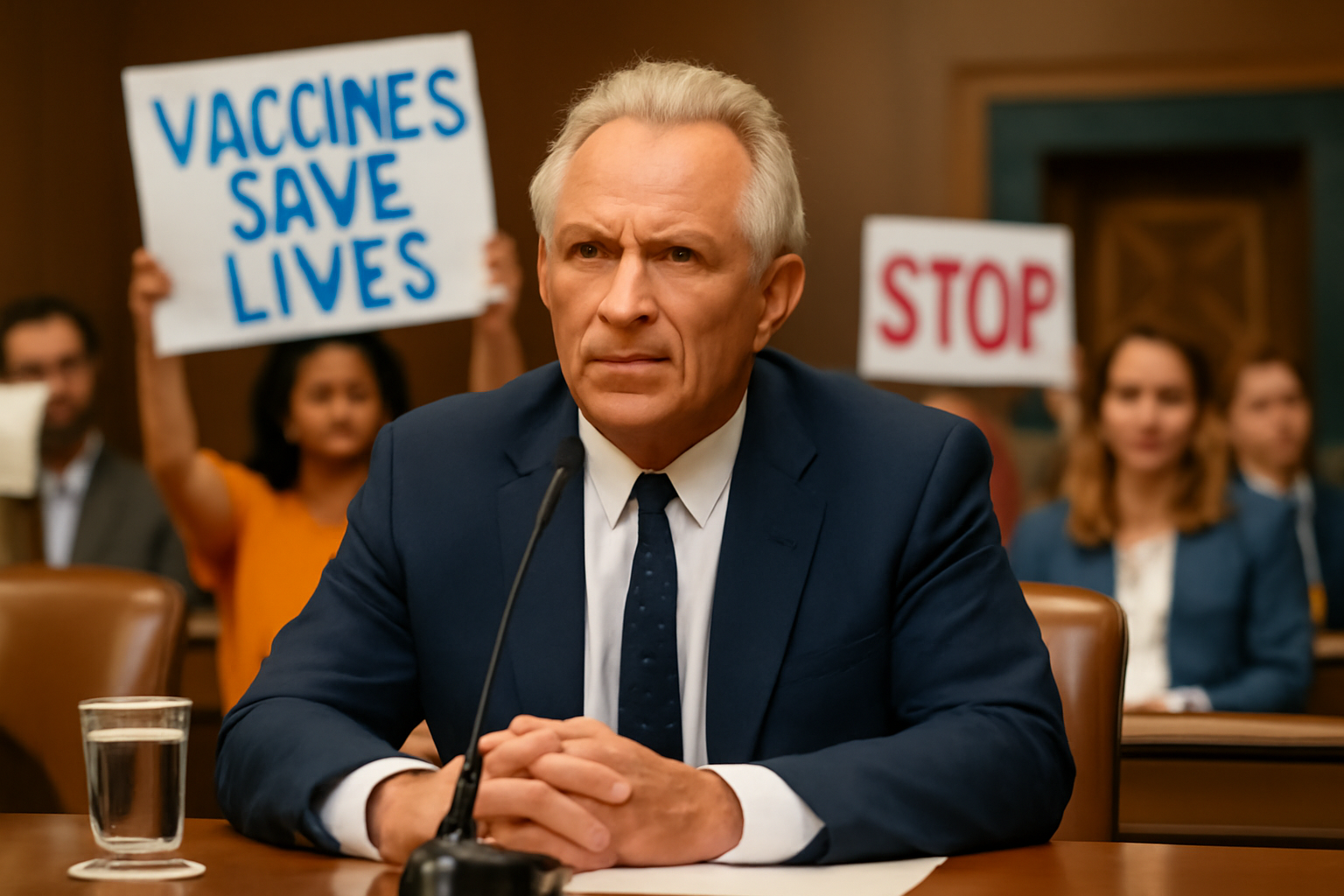
In a highly charged U.S. Senate confirmation hearing, Robert F. Kennedy Jr. faced intense questioning over his potential appointment as the head of the Department of Health and Human Services (HHS) under President Donald Trump. Known for his controversial views, particularly against vaccines, Kennedy struggled to distance himself from past statements and beliefs that have raised significant concerns among lawmakers and the public.
Contentious Start: Vaccine Stance and Protesters
The hearing began with Kennedy attempting to clarify his position on vaccines, a topic that has marked much of his public life. "News reports have claimed that I am anti-vaccine or anti-industry," Kennedy stated during his opening remarks, attempting to shift the narrative to a focus on chronic disease prevention. Despite his attempts to clarify, Kennedy was met with skepticism and interruptions, including a protester in the hearing room who shouted accusations of dishonesty.
Evading Direct Answers
Throughout the hearing, Kennedy faced questioning on various health policy issues under the HHS’s jurisdiction. When asked by Senator Bill Cassidy about Medicaid and Medicare, which provide critical support to millions of Americans, Kennedy mistakenly described these programs as having high premiums and deductibles, which are not accurate representations of these services.
Controversial Statements on Gender and Chemicals
One of the more heated exchanges occurred when Senator Michael Bennet questioned Kennedy about previous allegations that he had linked pesticide exposure to transgender identity development in children. Kennedy denied making such statements directly, but his past comments suggesting that environmental chemicals could influence gender identity and sexual orientation were highlighted as a continuing concern.
Handling of HIV/AIDS and Reproductive Rights
Bennet further pressed Kennedy on his views regarding HIV/AIDS, questioning his past assertions that HIV is not the cause of AIDS. Kennedy's responses were evasive, as he reiterated alternative causes involving lifestyle factors and chemical use. The exchange shifted to reproductive rights, where Kennedy's previous support for leaving abortion decisions to women was juxtaposed against his current political alignment, raising doubts about his commitment to reproductive freedoms.
Vaccination Policies Under Scrutiny
Senator Ron Wyden confronted Kennedy on his stance regarding the measles vaccine, a critical public health measure. Kennedy's reluctance to affirm the vaccine's necessity and safety led to further criticism, particularly when Wyden cited a past podcast where Kennedy questioned the efficacy of all vaccines. Wyden challenged Kennedy's contradictory statements, asking if he was misleading Congress or if his podcast claims had been debunked.
Family and Legacy in the Spotlight
The hearing also touched on personal and familial dynamics, as a letter from Kennedy's cousin, Caroline Kennedy, criticizing his character and motivations, was brought to light. Her letter accused him of exploiting vulnerable parents while privately ensuring his own children were vaccinated, painting a picture of hypocrisy.
Conspiracy Theories and Accountability
When questioned about more speculative claims, such as Lyme disease being a militarily engineered bioweapon, Kennedy's admission of having suggested such a theory further fueled concerns about his suitability for the HHS role. Lawmakers expressed apprehension over his embrace of conspiracy theories and the potential impact on public health policy.
Overall, the hearing highlighted significant doubts about Kennedy's fitness for a leadership position in national health policy, given his controversial views and the potential implications for LGBTQ+ communities, who rely on informed and unbiased health governance. The proceedings underscored the broader challenge of ensuring that public health leadership is grounded in science and reflects an inclusive approach to health and human services.
Stay informed with the latest developments impacting LGBTQ+ communities by subscribing to our newsletter.
Related Posts
Triumphant Trans Woman Wins Legal Battle and Inspires Others to Stand Up for Their Rights
Breaking new ground: a landmark victory in transgender rights After battling in courtrooms and enduring endless challenges, Diana Portillo, a transgender woman, has secured a monumental victory in her decade-long fight against workplace discrimination. The result? Nearly $1 million awarded in a historic settlement. But this isn't just a win on paper—it represents a powerful precedent in combati [...]
Pride Month in Latin America: Protests and Demands for Equality
**Celebrating Pride and advocating LGBTQ+ rights in Latin America** Pride Month in Latin America was a lively mix where celebration met activism. Communities united, not just throwing a party but making a stand—demanding equality and pushing governments toward better protection and rights recognition. Throughout Latin America, pride events erupted in marches and cultural displays, each with a c [...]
Transgender Erasure Actions Implemented by National Park Service
```html Trump administration's impact on national park service and transgender recognition The Trump administration made notable moves in undermining transgender representation, which included directing agencies like National Park Service not include "T" and "Q" when they refered “LGBTQ” in any official communication. This move seems part a broader plan by this administration aimed at reducin [...]